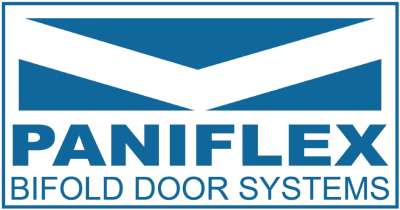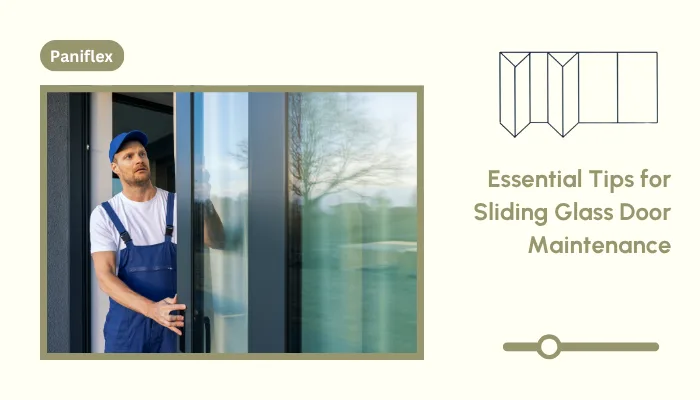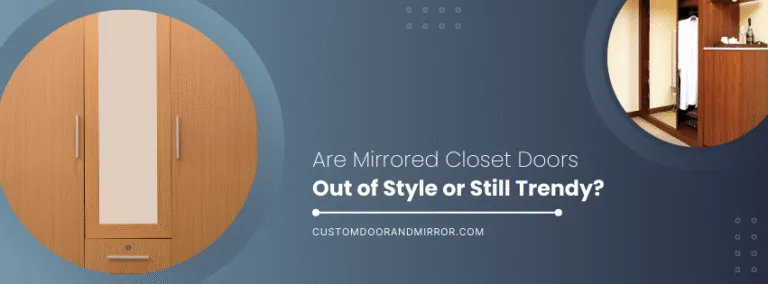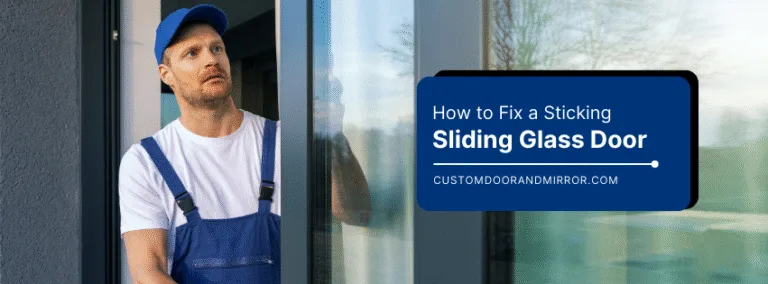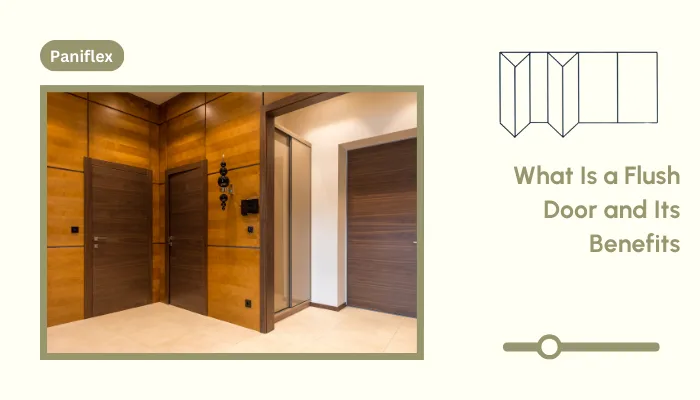Sliding glass doors are a popular feature in modern projects, offering seamless transitions, natural light, and expansive views. However, without regular maintenance, they can quickly develop issues that affect functionality and appearance.
We understand how frustrating it can be for professionals when poorly maintained doors lead to client complaints, callbacks, and unnecessary repair costs. This guide covers practical maintenance tips, common issues, and preventive measures to help you keep sliding glass doors performing smoothly for years to come.
Ready to experience the benefits of custom closet doors? Explore our range of Paniflex products now.
TL;DR
- Maintain sliding glass doors by cleaning tracks, lubricating rollers with silicone spray, inspecting seals, and tightening hardware regularly.
- Maintenance done at the right time can prevent costly repairs, improve door lifespan, and ensure energy efficiency
- Address common issues like sticking, drafts, and noisy rollers with timely care and professional service when needed.
- Follow a seasonal maintenance routine to prevent damage from environmental changes and extend the door’s lifespan.
- Choose quality hardware and educate clients on proper use to minimize long-term maintenance challenges.
Why Sliding Glass Door Maintenance Matters
Sliding glass doors are designed for ease of use and visual appeal, but they require consistent care to maintain their performance over time. Failing to maintain equipment often leads to operational issues and higher repair costs.
- Preserve Smooth Operation: Dirt and debris in the tracks cause sticking and resistance when sliding.
- Extend Door Lifespan: Regular inspections and care prevent premature wear of rollers, tracks, and seals.
- Maintain Energy Efficiency: Well-maintained seals and weatherstripping reduce drafts and heat loss.
- Enhance Safety: Properly functioning locks and tracks ensure doors remain secure and safe.
- Protect Design Appeal: Prevent scratches, fogging, and frame damage with simple, routine upkeep.
Even with the best doors, common issues can arise without regular attention. Understanding these problems and their causes is the first step to maintaining optimal door performance. Let’s examine the typical challenges professionals face with sliding glass doors.
Suggested Watch: Maintaining a sliding glass door starts with cleaning and lubricating it. Watch this video to learn more.
Common Issues With Sliding Glass Doors
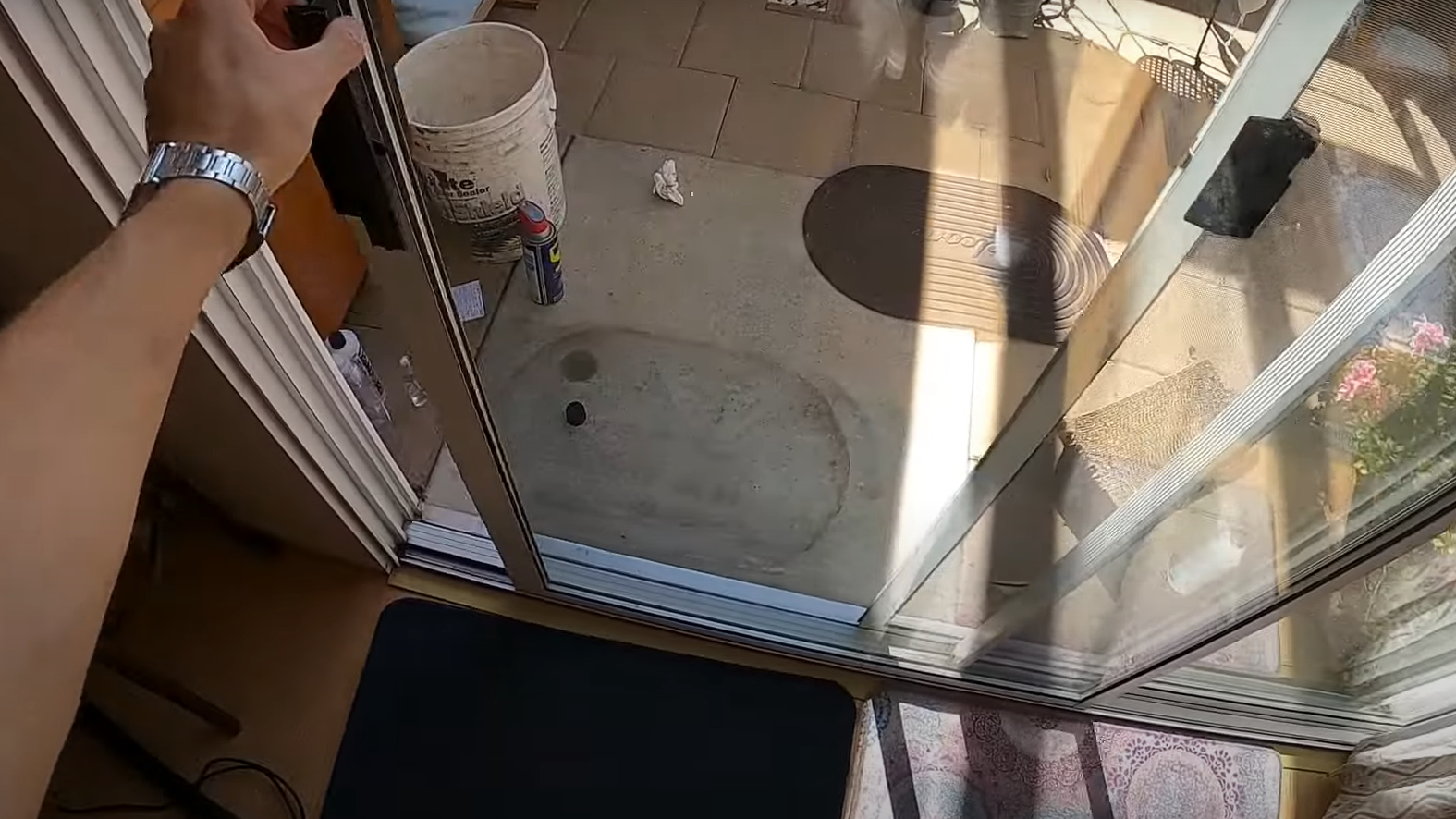
Sliding glass doors are exposed to daily wear and tear, as well as environmental stress. Without routine upkeep, they can develop problems that compromise function, safety, and design integrity. Recognizing these issues enables professionals to address them proactively.
1. Sticking or Hard-to-Slide Doors
Debris, dirt, or misaligned tracks often make doors difficult to open or close. Over time, this increases strain on hardware and can damage rollers.
Solution: Clean tracks regularly and realign the door to ensure smooth sliding.
2. Drafts and Leaks From Worn Seals
Damaged or aged weatherstripping allows air and moisture to seep in, reducing energy efficiency and causing discomfort indoors.
Solution: Inspect and replace weatherstripping as needed to restore a tight, energy-efficient seal.
3. Foggy or Condensed Glass Panels
Seal failures in double-glazed units cause condensation between panes, affecting visibility and insulation.
Solution: Recommend professional repair or glass replacement to fix broken seals effectively.
4. Noisy or Misaligned Rollers
Worn or damaged rollers can make doors rattle, squeak, or move unevenly along the track.
Solution: Lubricate rollers with a silicone-based product or replace them if wear is significant.
5. Lock and Handle Malfunctions
Loose or corroded hardware can compromise security and functionality, especially in high-traffic areas.
Solution: Check and tighten all hardware regularly, replacing damaged locks or handles when necessary.
Addressing these common issues is only part of the equation. Regular, preventive care ensures sliding glass doors continue to perform at their best. The next section outlines essential maintenance tips for professionals and their clients.
Suggested Read: How to Install Sliding Closet Door Floor Guides on Various Surfaces
Maintenance Tips for Sliding Glass Doors
Regular maintenance is critical for keeping sliding glass doors operating smoothly and looking their best. These tips help prevent wear, improve functionality, and extend the life of both the doors and their hardware.
1. Keep Tracks Free From Dirt and Debris
Dust, leaves, and small particles often collect in tracks, obstructing movement and causing rollers to wear prematurely.
- Vacuum tracks weekly to remove loose debris.
- Use a stiff brush to loosen stubborn dirt.
- Wipe down with a damp cloth for a clean finish.
2. Lubricate Moving Components Correctly
Proper lubrication reduces friction and prevents squeaking or sticking.
- Use a silicone-based lubricant on rollers and tracks.
- Avoid oil-based products, which attract dust and grime.
- Apply sparingly to prevent residue buildup.
3. Inspect and Tighten Hardware Regularly
Loose screws and fittings can lead to misaligned doors or security risks.
- Check handles, locks, and roller brackets every few months.
- Tighten any loose components with the appropriate tools.
4. Clean Glass Panels With Gentle Solutions
Harsh cleaners can damage seals and coatings.
- Use a mild soap and water mix or a glass cleaner approved for insulated units.
- Wipe with a soft microfiber cloth to avoid scratches.
5. Protect Frames From Environmental Damage
Frames can degrade due to UV exposure, moisture, or impacts.
- Inspect for cracks, dents, or fading.
- Apply protective treatments if specified by the manufacturer.
- Keep nearby landscaping trimmed to avoid scratches or dings.
6. Check for Smooth Door Alignment
Misaligned doors strain tracks and rollers. Make sure you do the following:
- Open and close the door to feel for resistance or wobbling.
- Adjust alignment using the roller screws as per the manufacturer’s guide.
7. Educate Homeowners on Gentle Handling
Rough use often leads to avoidable damage. This can be avoided through the following steps:
- Encourage clients to avoid slamming doors.
- Suggest adding soft-close systems in high-traffic areas for better control.
While these essential tips cover year-round care, seasonal changes bring unique challenges for sliding glass doors. The next section provides a practical checklist to guide maintenance during different times of the year.
Seasonal Maintenance Checklist for Sliding Glass Doors
Sliding glass doors face different stresses as the seasons change. A seasonal approach to maintenance helps prevent damage, maintain performance, and avoid last-minute service calls.
Spring: Recover From Winter Wear
- Clean tracks thoroughly to remove dirt, salt, and debris left from winter.
- Inspect weatherstripping for cracks or gaps caused by freezing temperatures.
- Check rollers and tracks for rust or corrosion and address promptly.
- Open doors fully and test for smooth movement after months of limited use.
Summer: Prepare for Heavy Use
- Inspect glass and frames for UV damage or discoloration.
- Clean and lubricate rollers, focusing on avoiding residue buildup in the heat.
- Trim vegetation around exterior frames to prevent scratches and allow ventilation.
- Advise clients to avoid slamming doors in humid conditions, which can cause expansion issues.
Fall: Ready Doors for Colder Weather
- Reinspect and replace any worn or compressed weatherstripping to block drafts.
- Clean tracks and apply a light silicone-based lubricant to prevent freezing.
- Tighten hardware to withstand increased contraction and expansion during cold snaps.
- Ensure proper drainage around exterior tracks to avoid water pooling.
Winter: Minimize Cold-Weather Strain
- Remove ice and snow buildup from tracks to prevent jamming.
- Monitor seals for condensation or leaks during extreme temperature swings.
- Check that locks engage properly despite frame contraction in low temperatures.
- Recommend periodic ventilation to prevent excess humidity indoors from affecting glass seals.
While seasonal care addresses environmental factors, many installations suffer because of overlooked details or improper maintenance practices. The next section lists the mistakes you need to be aware of while performing sliding door maintenance.
From the Community: Learn more about maintaining sliding doors that are installed as a main entrance in this Reddit thread.
Mistakes to Avoid in Sliding Glass Door Maintenance
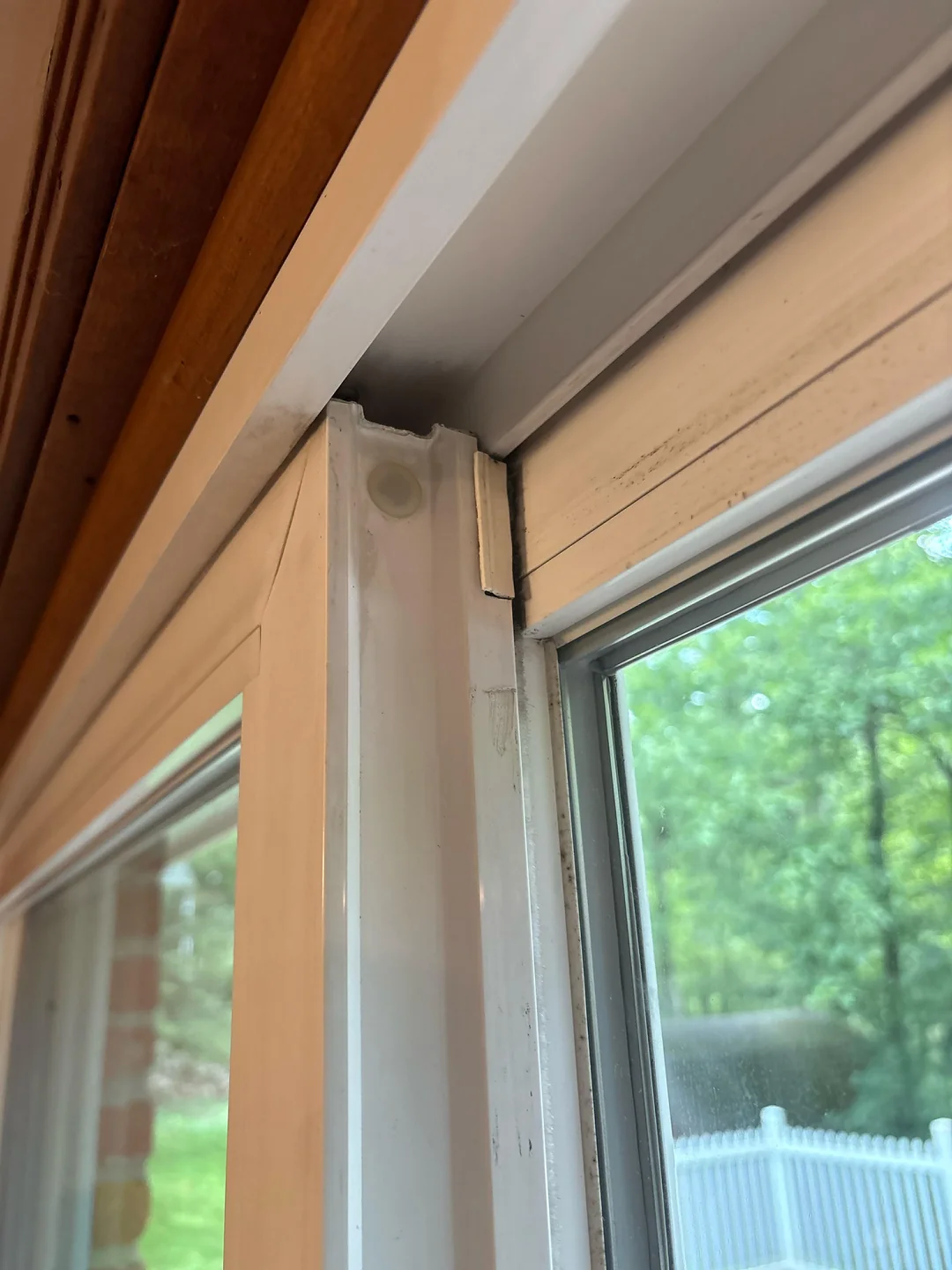
Even with good intentions, improper maintenance can shorten the life of sliding glass doors. Avoiding these common mistakes ensures long-term functionality and fewer client complaints.
- Using Oil-Based Lubricants: These attract dirt and grime, leading to sticky tracks and faster wear on rollers.
- Neglecting Weatherstripping: Failing to inspect or replace seals results in drafts, moisture intrusion, and energy loss.
- Overtightening Hardware: Excess force on screws and fittings can damage the door frame or cause misalignment.
- Skipping Track Cleaning: Dirt and debris left in tracks increase friction and put stress on the door’s components.
- Delaying Minor Repairs: Ignoring small issues like loose handles or minor misalignments can lead to larger, costlier failures.
- Using Harsh Chemicals on Glass: Abrasive cleaners can damage coatings and compromise double-glazed units.
While avoiding these mistakes is crucial, hardware quality plays an equally significant role in door longevity. The next section explores how selecting the right components impacts long-term performance.
Suggested Read: DIY Ideas for Replacing HVAC and AC Closet Doors
Role of Hardware in Long-Term Sliding Door Performance
High-grade hardware ensures smoother operation, reduces wear, and minimizes the need for frequent adjustments. Poor-quality or improperly maintained hardware, on the other hand, is often the first point of failure in sliding door systems.
- Premium Rollers Reduce Friction: Durable rollers made from stainless steel or nylon withstand heavy use and resist corrosion.
- Robust Tracks Prevent Warping: Well-engineered tracks maintain alignment even under constant sliding and exposure to outdoor conditions.
- Secure Locking Systems: High-quality locks and latches ensure reliable security without compromising smooth operation.
- Corrosion-Resistant Materials: Hardware finishes like powder coating protect against moisture and salt damage in coastal or humid environments.
- Proper Installation Matters: Even premium hardware fails quickly if not installed to the manufacturer’s specifications.
While hardware quality is a key factor, proactive maintenance habits also make a significant difference. The next section highlights practical steps professionals can take to extend the life of sliding glass doors.
How to Extend the Life of Sliding Glass Doors
Sliding glass doors are a significant investment in any project. With the right care and installation practices, professionals can ensure these doors deliver smooth performance and style for years to come.
- Prioritize Quality Materials: Select doors and hardware made from corrosion-resistant, high-strength materials suited to the project’s environment.
- Ensure Correct Installation: Proper alignment and secure hardware fittings prevent premature wear and operational issues.
- Schedule Routine Professional Inspections: Annual checks help identify small issues like worn rollers or seals before they escalate.
- Encourage Gentle Handling: Advise clients against slamming doors or forcing them when stuck to reduce stress on tracks and rollers.
- Protect Doors From Environmental Damage: Install awnings or overhangs to shield exterior sliding doors from rain, sun, and debris.
- Update Components Proactively: Replace aging weatherstripping, rollers, and locks to maintain functionality and safety.
Extending the life of sliding doors is not just about professional upkeep. Educating clients on simple care routines can further enhance longevity and reduce unnecessary service calls. The next section covers practical ways to help clients maintain their sliding glass doors effectively.
Suggested Read: Simple Steps to Install a Door in a Hallway
Helping Clients Care for Sliding Glass Doors
Homeowners often overlook the maintenance sliding glass doors require. By providing simple care guidance, professionals can help clients preserve door functionality and appearance between service visits.
- Share a Basic Cleaning Routine: Advise wiping down glass and frames monthly with mild soap and water.
- Teach Track Maintenance: Encourage clients to vacuum tracks regularly and avoid letting dirt or pet hair accumulate.
- Recommend Silicone Lubricants: Suggest periodic lubrication of rollers and tracks with non-oil-based products.
- Inspect Weatherstripping Periodically: Show clients how to check for cracks or gaps in seals to prevent drafts and leaks.
- Promote Gentle Operation: Remind them not to slam doors or use excessive force when sliding.
- Provide a Seasonal Checklist: Offer a simple handout outlining care tasks for each season to prevent major issues.
Even with proper client care, certain issues require a professional’s expertise. The next section highlights when it is essential to recommend professional service for sliding glass doors.
When to Recommend Professional Service?
Not all sliding glass door issues can be resolved with basic maintenance. Recognizing when professional intervention is needed ensures safety, performance, and client satisfaction. Interior designers, architects, and contractors should recommend their clients to get a professional door installer in the following scenarios:
- Persistent Alignment Problems: Repeated sticking or uneven sliding often requires track realignment or roller replacement by a professional.
- Broken or Foggy Glass Panels: Seal failures in double-glazed units call for expert repair or glass replacement.
- Damaged Frames or Tracks: Warped or corroded frames compromise door integrity and should be addressed by specialists.
- Lock or Handle Malfunctions: Security hardware issues are best handled by experienced technicians to restore proper function.
- Excessive Water Leaks: When weatherstripping replacement does not solve leaks, a professional should inspect for structural or installation flaws.
To reduce such service needs, choosing doors designed for durability and minimal upkeep is key. The next section explores how Custom Door & Mirror solutions help professionals deliver long-lasting sliding door installations.
Custom Door & Mirror Solutions for Sliding Door Longevity
Professionals looking for sliding glass doors that combine design appeal with lasting performance need custom solutions engineered for demanding environments. Custom Door & Mirror products are built to reduce maintenance issues and deliver a superior user experience over time.
1. Solid Backing for Maximum Impact Resistance
Our doors feature solid backing that resists dents and warping, even under frequent use or minor impacts. This enhances durability and ensures the door maintains its shape and smooth operation.
2. Patented TruClose Hinges for Reliable Closure
TruClose hinges are designed to keep doors securely shut without slamming. This prevents damage from rough handling and helps maintain alignment over the years of operation.
3. Factory-Applied Finishes for Lasting Protection
Our doors come with edge-to-edge factory-applied finishes that resist moisture, scratches, and fading. This reduces the need for touch-ups and keeps doors looking new longer.
4. Premium Hardware Systems for Smooth Performance
High-quality rollers, tracks, and locking mechanisms ensure effortless sliding and secure closure, even in high-traffic residential and commercial applications.
5. Engineered for Easy Maintenance
Design features like debris-resistant tracks and corrosion-resistant hardware simplify upkeep, helping contractors deliver doors that clients can care for easily.
Custom Door & Mirror provides solutions that meet the functional and design demands of modern projects. With durable construction and smart engineering, these doors help professionals deliver installations that stand the test of time.
Ready to experience the benefits of custom closet doors? Explore our range of Paniflex products now.
Conclusion
Proper care and maintenance are essential to keep sliding glass doors operating smoothly and looking their best. By understanding common issues, implementing preventive measures, and knowing when to call in professionals, designers and contractors can deliver long-lasting results for their clients.
At Custom Door & Mirror, we engineer sliding door solutions that minimize maintenance and maximize performance. With durable materials, precision hardware, and factory-applied finishes, our products are built to support your projects for years to come.
Contact us today to explore sliding door options designed for demanding residential and commercial spaces.
Frequently Asked Questions
1. How do you maintain sliding glass doors?
Clean tracks regularly, lubricate rollers with silicone spray, inspect weatherstripping for wear, tighten hardware, and check alignment. Seasonal care prevents drafts, sticking, and damage, ensuring smooth operation and extending the door’s lifespan.
2. What to lubricate a sliding glass door with?
Use a silicone-based lubricant for rollers and tracks. Avoid oil-based products, as they attract dirt and grime. Apply sparingly after cleaning tracks to maintain smooth sliding without causing residue buildup.
3. What are the best treatments for sliding doors?
Edge-to-edge factory finishes and corrosion-resistant hardware protect doors from moisture, UV damage, and daily wear. Regular cleaning and professional inspections also help maintain design appeal and performance in high-traffic or weather-exposed areas.
4. How to maintain a sliding screen door?
Vacuum tracks to remove dirt, wash screens gently with mild soap, check for bent frames or torn mesh, and lubricate rollers with silicone spray. Tighten any loose fittings to keep the door secure and easy to slide.
